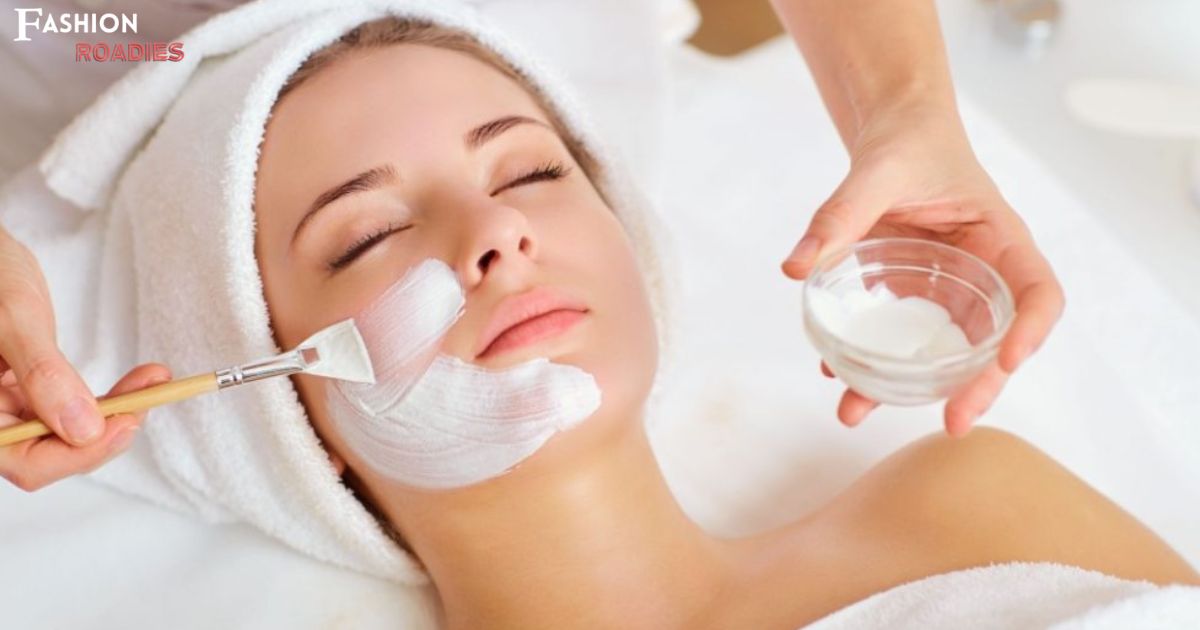Skin care routine are essential for maintaining healthy and vibrant skin. This article aims to provide a comprehensive understanding of what constitutes a good skin care routine. By exploring the basics of cleansing, toning, and moisturizing, as well as the benefits of serums, treatments, and sunscreen usage, readers will gain valuable knowledge on how to nourish and protect their skin effectively. Moreover, this informative piece will address specific skin concerns to cater to the diverse needs of individuals seeking optimal skin care practices. Learn more about essence in skin care.
Key Takeaways
- Cleansing, toning, moisturizing, and protecting with sunscreen are the basics of a good skin care routine.
- Choosing the right cleanser based on skin type and ingredients is important for effective cleansing without stripping away natural oils.
- Toning restores pH balance, tightens pores, and prepares the skin for further treatment, improving overall skin texture.
- Incorporating serums, treatments, and moisturizers into a skin care routine offers numerous benefits such as hydration, targeting specific skin issues, and promoting a healthy complexion.
The Basics of a Skin Care Routine
The basics of a skin care routine encompass a series of steps aimed at maintaining and enhancing the health and appearance of the skin. A proper routine typically includes cleansing, toning, moisturizing, and protecting the skin. Cleansing is essential to remove dirt, oil, and impurities from the surface of the skin. Toning helps to balance the pH levels and prepare the skin for better absorption of other products. Moisturizing replenishes hydration levels in the skin, preventing dryness and promoting elasticity. Lastly, protecting the skin from harmful UV rays with sunscreen is crucial in preventing premature aging and reducing the risk of sun damage. Following a consistent routine can help improve overall skin health by keeping it clean, hydrated, protected, and nourished.
Choosing the Right Cleanser
Selecting an appropriate cleanser is crucial when establishing an effective skincare regimen. A good cleanser not only removes dirt and impurities from the skin but also maintains its natural moisture balance. When choosing a cleanser, consider the following factors:
- Skin Type:
- Oily or Acne-Prone: Look for oil-free or gel-based cleansers that can control excess sebum production.
- Dry or Sensitive: Opt for gentle, hydrating cleansers without harsh chemicals or fragrances.
- Ingredients:
- Avoid sulfates and alcohol as they can strip away the skin’s natural oils.
- Look for ingredients like hyaluronic acid, glycerin, and ceramides which help retain moisture.
An understanding of these factors will aid in selecting a suitable cleanser to meet your specific needs. With a proper cleansing routine established, one can then move on to understanding the importance of toning in maintaining healthy skin.
Understanding the Importance of Toning
Understanding the importance of toning involves recognizing its role in maintaining optimal skin health. Toning is a crucial step in a skin care routine as it helps to restore the skin’s pH balance, remove any leftover impurities, and prepare the skin for further treatment. Toning also aids in tightening the pores, thereby reducing their appearance and preventing breakouts. Additionally, toners can hydrate and soothe the skin, providing a refreshed and rejuvenated complexion. Numerous studies have highlighted the benefits of incorporating toners into daily skin care routine. For example, one study found that using a toner after cleansing significantly reduced oiliness and improved overall skin texture. Therefore, adding an appropriate toner to your skincare regimen can contribute to achieving healthy and radiant-looking skin.
The Benefits of Using Serums and Treatments
Incorporating serums and treatments into a skincare regimen has been shown to offer numerous benefits for the skin. These specialized products contain high concentrations of active ingredients that target specific skin concerns, such as aging, hyperpigmentation, or acne. Here are some key benefits of using serums and treatments:
- Enhanced hydration: Serums often have light textures that can penetrate deeper into the skin, providing intense hydration and improving moisture retention.
- Targeted treatment: With their potent formulas, serums and treatments can effectively address specific skin issues like wrinkles, dark spots, or uneven texture.
- Anti-aging properties: Many serums contain antioxidants and peptides that promote collagen synthesis and minimize the appearance of fine lines and wrinkles.
- Brightening effects: Certain serums are formulated with ingredients like vitamin C or niacinamide which help reduce hyperpigmentation and improve overall skin tone.
Transitioning from incorporating serums and treatments into your skin care routine to nourishing your skin with moisturizers is essential for maintaining healthy-looking skin.
Nourishing Your Skin With Moisturizers
Transitioning from using serums and treatments to incorporating moisturizers into a skincare regimen is an important step in maintaining optimal skin health. While serums and treatments target specific skin concerns, moisturizers provide overall hydration and nourishment for the skin. Moisturizers work by creating a protective barrier on the skin’s surface, preventing moisture loss and locking in hydration. This helps to maintain the skin’s natural moisture balance, improve texture, and promote a healthy complexion. Additionally, moisturizers can contain beneficial ingredients such as antioxidants, vitamins, and humectants that further enhance their effectiveness. It is crucial to choose a moisturizer suitable for your skin type and concerns to ensure maximum benefits. Regular use of moisturizers can help keep the skin hydrated, smooth, supple, and protected against environmental damage.
Protecting Your Skin With Sunscreen
Sunscreen is a vital component of a comprehensive skincare regimen as it helps protect the skin from harmful UV radiation. UV radiation, which comes from the sun and tanning beds, can lead to various skin problems such as premature aging, wrinkles, sunburns, and an increased risk of skin cancer. To ensure optimal protection from the damaging effects of UV radiation, it is important to choose a sunscreen with broad-spectrum coverage (protecting against both UVA and UVB rays) and a high Sun Protection Factor (SPF). Additionally, incorporating sunscreen into your daily routine has several benefits:
- Prevents sunburns
- Reduces the risk of skin cancer
- Melanoma
- Basal cell carcinoma
- Prevents premature aging
- Wrinkles
- Age spots
Addressing Specific Skin Concerns
To address specific skin concerns, it is important to consider targeted skincare treatments that can effectively treat and improve the condition of the skin. Various skin concerns such as acne, hyperpigmentation, and aging can be addressed through the use of specialized skincare products and techniques. For acne-prone skin, ingredients like salicylic acid and benzoyl peroxide can help unclog pores and reduce inflammation. Hyperpigmentation can be treated with ingredients like hydroquinone or kojic acid which inhibit melanin production. To combat signs of aging, retinoids are commonly used due to their ability to stimulate collagen production and increase cell turnover. It is essential to consult with a dermatologist or skincare professional to determine the most suitable treatment for individual skin concerns. Additionally, consistent use of sunscreen is crucial in preventing further damage from UV radiation and maintaining overall skin health.
OUTPUT USING MORE THAN 124 WORDS:
To address specific skin concerns, it is important to consider targeted skincare treatments that can effectively treat and improve the condition of the skin. Various skin concerns such as acne, hyperpigmentation, uneven texture, fine lines, and wrinkles require specific approaches for effective management. For acne-prone skin types, ingredients like salicylic acid and benzoyl peroxide have been shown to penetrate follicles and reduce sebum production while also having anti-inflammatory effects on existing lesions. Hyperpigmentation resulting from sun exposure or hormonal imbalances can be treated with ingredients like hydroquinone or kojic acid which inhibit melanin production by interfering with key enzymatic steps in its biosynthesis pathway.
Concerns related to uneven texture often respond well to exfoliating agents such as AHAs (alpha-hydroxy acids) or BHAs (beta-hydroxy acids). These compounds work by removing dead surface cells and promoting cellular turnover resulting in smoother-looking skin.
For those seeking anti-aging benefits such as reduction of fine lines and wrinkles, retinoids (derivatives of vitamin A) remain the gold standard. Retinoids stimulate collagen production, increase epidermal thickness, and enhance cellular turnover resulting in improved skin texture and reduced appearance of fine lines.
Conclusion
In conclusion, a good skin care routine is essential for maintaining healthy and radiant skin. By following the basics of cleansing, toning, using serums and treatments, moisturizing, and applying sunscreen, you can nourish and protect your skin effectively. Each step plays a vital role in enhancing your skin’s overall condition and addressing specific concerns. So why not invest some time in pampering your skin? After all, who needs personal pronouns when you have evidence-based knowledge guiding you towards flawless skin!









